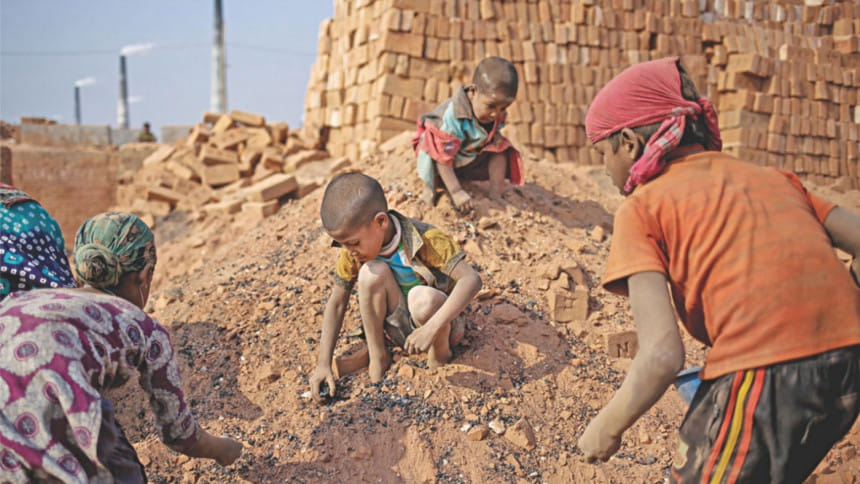Bangladesh can lead the call to end child labour in South Asia

In 1998, when 14-year-old Khokon from Bangladesh led the Global March against Child Labour from the front, he became the face of the revolution to end child labour around the world, and the voice of millions of his brothers and sisters across the world that remained unseen and voiceless. When Khokon, a former child labourer, marched on his single leg demonstrating the power of human resolve, the world followed.
Twenty years on, as we mark 2021 as the International Year for the Elimination of Child Labour, it is only right that we begin with Bangladesh. The UN, while marking the year, called on the governments of the world to take real and urgent action to fulfil its promise to end child labour in all its forms by 2025. With the economic growth and success in achieving education parity that is increasingly making it a regional power, Bangladesh is well placed to lead the fight to end child labour in South Asia.
It cannot be denied that our challenges today are far greater than ever before. Covid-19 has exacerbated existing inequality, as already marginalised children are denied access to education and forced into child labour to compensate the loss of family income. This was further aggravated by the unequal response to the Covid crisis, as almost all of the USD 8 trillion announced by global leaders for the crisis has been spent on the wealthiest, while those who needed support the most have received only 0.3 percent of the relief. Essentially, the most marginalised children and their families of the world have, yet again, been denied their fair share.
We cannot allow this to happen in the midst of a crisis that can push generations of children into lifelong slavery and exploitation. We cannot lose an entire generation to the effects of the pandemic and turn the clock back on the decades of progress made. It is incumbent upon us to demand justice for our children who are being left behind at this time of crisis. The Fair Share to End Child Labour Campaign, launched globally last month alongside survivors, faith and business leaders, global students and trade unions and the heads of multilateral organisations such as ILO Director General Guy Ryder, OECD Secretary General Angel Gurría, WHO Secretary General Dr Tedros Ghebreyesus and IPU Secretary General Martin Chungong. The campaign calls for a fair share of resources, policies and social protection for the poorest children of the world.
There is no voice stronger and louder than that of survivors and young people to bring about change. The campaign is demanding that child labour is debated in every major political fora throughout 2021 with survivors at the forefront giving direct testimony resulting in concrete action taken to eliminate child labour once and for all. We are calling for national parliaments to mark the International Year for Elimination of Child Labour by holding a special session to discuss the issue of child labour and undertake tangible initiatives towards its eradication. I am proud that my sister Rasheda Choudhury is leading the campaign in Bangladesh, alongside other champions from the South Asia region, and is building a broad coalition across Bangladesh to champion this issue throughout 2021. Her decades of powerful leadership in the fight against child labour, especially for girls trapped in domestic labour, will be a driving force of the global campaign.
The call for fair share is a call for justice, and a call for equality. There could be many interpretations and reasons for the growing injustice, inequality, and miseries in the world. But the crux of the matter is that our children have been denied their fair share, and it is high time we change that. We know the problem, we know the solutions, and we are empowered with more technological prowess and wealth than ever before. All we need is the moral courage and political will to prioritise our children. As large-scale vaccination drives begin in Bangladesh and other parts of the world, we must not leave our children behind. If we ignore this today, several generations will bear the cost of our choices. As we heal from the effects of the pandemic, let us take our children with us.
Kailash Satyarthi is an internationally acclaimed child rights activist. His unrelenting efforts for restoring the rights of the most marginalised and exploited children in the world won him the Nobel Peace Prize in 2014.

 For all latest news, follow The Daily Star's Google News channel.
For all latest news, follow The Daily Star's Google News channel. 



Comments